Retirement Announcement
After forty years, Health Care Development Services, Inc. (HCDS) announces the retirement of its President Barry Portugal. Since 1981, HCDS provided Pathology and Laboratory Medicine management consulting services to community and teaching hospitals, academic medical centers, large multi-hospital healthcare systems, pathology groups, and large multi-specialty medical groups.
Mr. Portugal and a team of extraordinary professionals that included consulting pathologists, Ph.D.’s, and Medical Technologists with advanced degrees represented more than 350 clients over the course of the practice regarding a broad range of Pathology and Laboratory Medicine operational, organizational, market, regulatory, and financial issues. A core of administrative support staff coordinated the myriad of issues that occurred during the course of each client assignment. We acknowledge and honor them below for their significant contributions to our clients.
| Professional Staff | Administrative Support |
| Joseph Patlovich MD Jim Winkelman MD Edward Fody MD Steven Ruby, MD, MBA Wendell O’Neal PhD Robert Ainslie PhD Steven DeBerg, MT/MBA Kathy Grant PhD Joel Mortenson PhD Bill Hart MT/MBA Elaine Flemming-Kusch MT/MBA Linda Long MT/MBA Debra Fischer MT/MBA Paul Laemmle MT/MBA Suzanne Butch MT/SBB June Pdjasek MT/MBA Gayle Hill HT/MBA Jay Wagner MT/MBA Maria Martel MT/MBA Tom Dilts MT/MBA Anne Belanger MT/MBA Luci Berte MT/SBB Nancy Bielinski BA/MBA Doug Knapman BA/MBA Marc Portugal BA |
Debbie Nelson Debbie Gober Stacy Krugman Dancy Bateman Meryl Gitlis Joan Weincord Rozalyn Kahn |
We would like to also thank our clients who included hospital administrators, board members, laboratory Medical Directors, pathology group leaders, and Administrative Laboratory Directors. We appreciated the opportunity to help them analyze difficult and complex issues and recommend options we believed to be in the best interest of their organizations.
Major Accomplishments
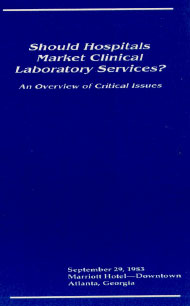 |
One of our early accomplishments was to present information to hospital leaders about how to develop outreach markets for their excess clinical laboratory and Anatomic pathology services. Beginning in 1983, speakers at HCDS sponsored nationwide seminars presented legal, regulatory, operational, and market considerations to organize hospital-based outreach programs to market clinical laboratory and Anatomic pathology services. As a result of information presented at these seminars, many hospitals created lab outreach programs that generated substantial unrelated business income for their organizations. |
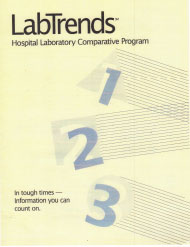 |
In 1986, HCDS introduced the LabTrends℠ Hospital Laboratory Performance Program. The program provided a comparative database of key operational, utilization, staffing, and financial indicators based on bed size and patient acuity. LabTrends℠ benchmarked hospital laboratory performance compared to other hospital laboratories with similar operating characteristics. The comparative indicators provided hospital laboratory Administrative Directors and hospital administrators with valuable information in order to measure, monitor, and improve laboratory performance. |
 |
In 1996, HCDS was honored by the American Hospital Association when it published a Special Report regarding how to plan future hospital laboratory services by using LabTrends℠ program information to plan future hospital laboratory services. |
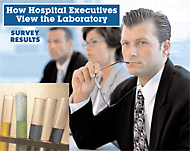 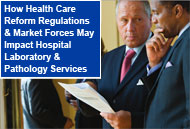 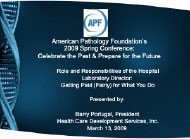 |
Based on industry-wide hospital laboratory information collected and analyzed by HCDS, we reported findings and conclusions concerning a wide range of topical issues for our clients. Our principals and analysts also made presentations on those topics to hospital, health care system, pathology group, and medical group leaders. |
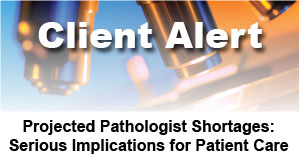 |
At the end of 2013, a seminal study published in the Archives of Pathology and Laboratory Medicine concluded that there could be a significant shortage of pathologists over the next decade. Because of the importance of this issue, HCDS published a special alert in 2014 on this topic. The report findings and conclusions, in part, became an element of the manner in which hospitals and pathology groups interacted with one another. |
